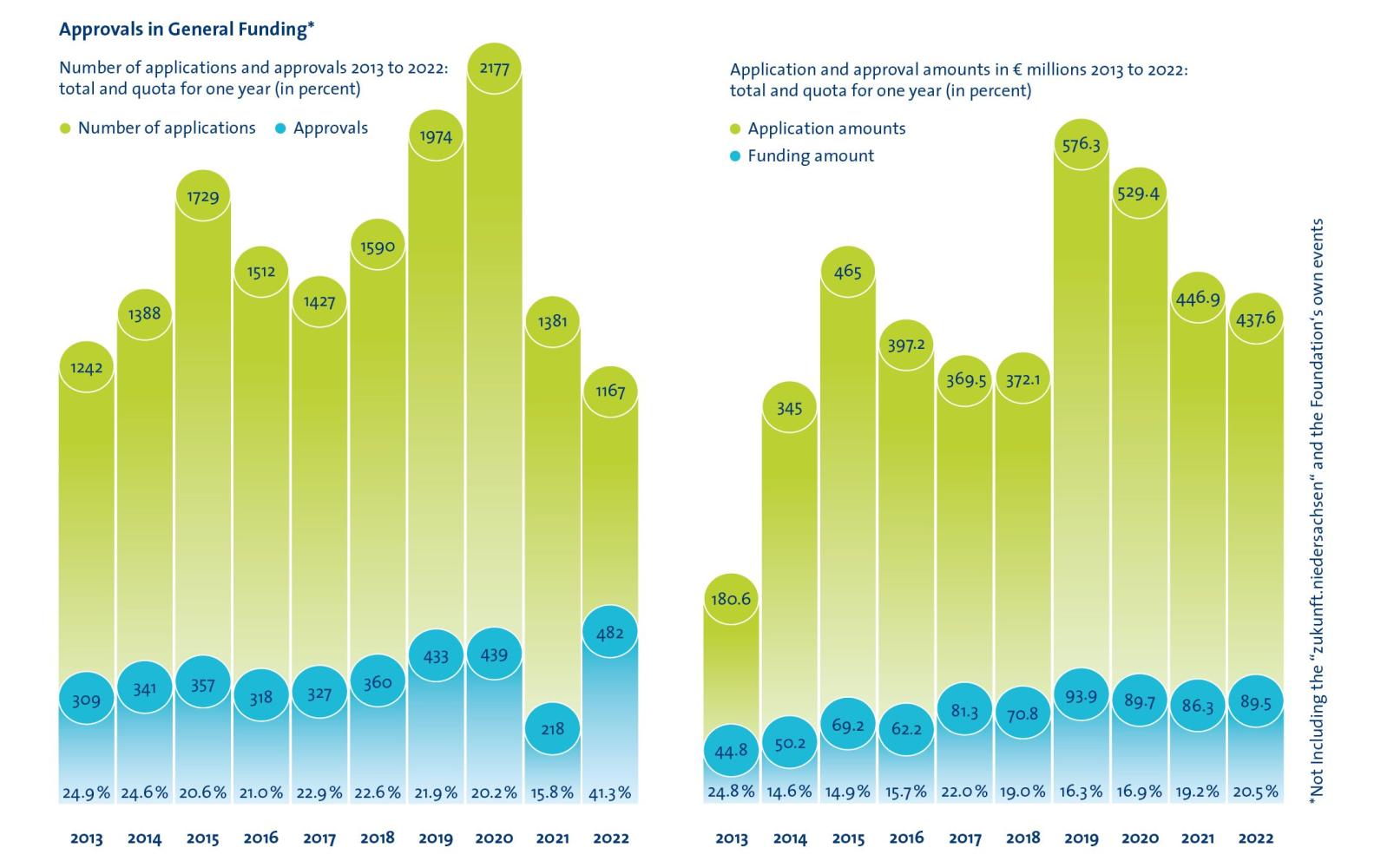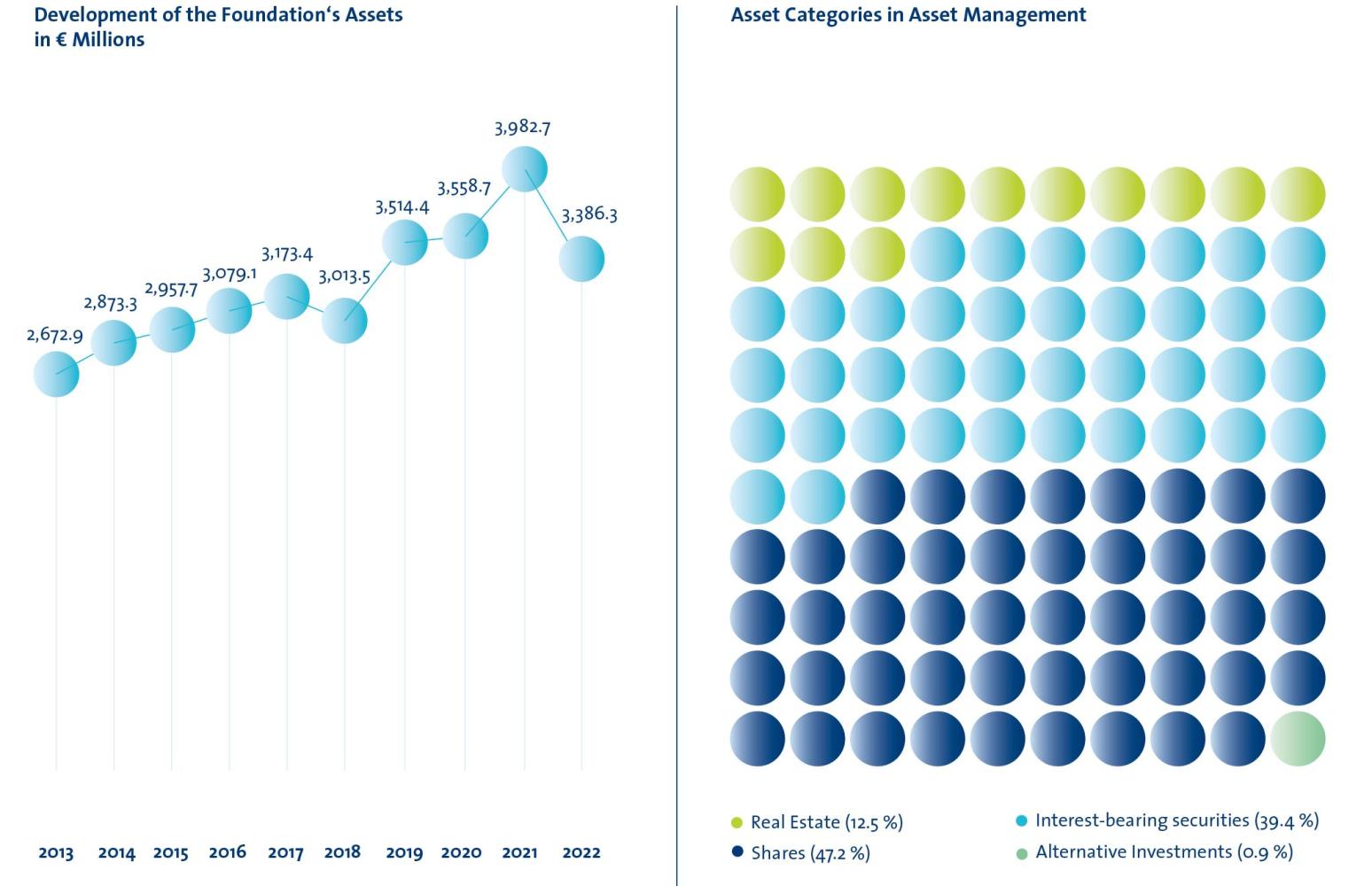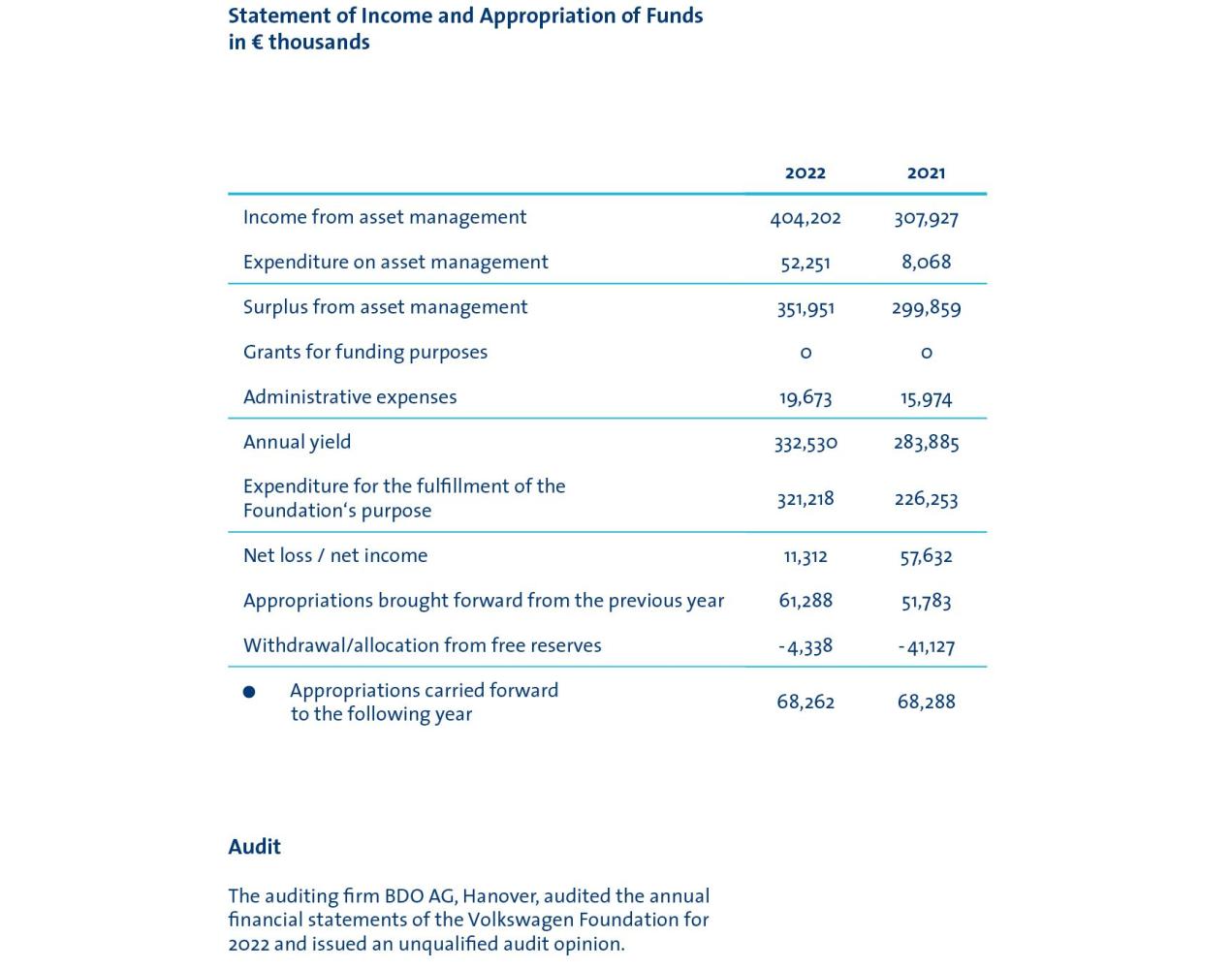
status 2022 – Annual report of the Volkswagen Foundation
In 2022, the Volkswagen Foundation approved EUR 331,9 million for scientific projects. Figures, data and facts from our 2022 annual report.
At a glance: The most important figures, data and facts

The Foundation
The Volkswagen Foundation is the largest private research funding organization and one of the largest foundations in Germany in terms of foundation capital. Its purpose is to support the humanities, social sciences and natural, life and technical sciences in research and higher education. It was founded by the Federal Republic of Germany and the State of Lower Saxony as an independent charitable foundation under private law. The Volkswagen Foundation, which is based in Hanover, is not affiliated to the Volkswagen automobile manufacturer.

Capital and funding
At present, the Foundation's capital amounts to approx. 3.4 bn. euros. The resources available for funding are generated from asset investment and allocated mainly in the area of 'General Funding'. Added to this are profit entitlements from 30.2 m. Volkswagen trust shares held by the Federal State of Lower Saxony (mainly dividends). These funds are awarded to research institutions in Lower Saxony, in close cooperation with the state government (see 'zukunft.niedersachsen'). In 2022 the funding volume in this area amounted to 237.3 m euros. Since the Foundation started its activities in 1962 funding totalling 280 bn. euros was approved.

Strategy
Three profile areas structure the funding portfolio: 1. Exploration, 2. Societal transformations, 3. Understanding Research – Evaluation and Science Practice. There is also a focus on the cross-sectional area Science in Society.

Funding concept
The Foundation has developed four guidelines for its funding practices.
- Providing impetus: The Foundation aims to play a pioneering role by supporting highly innovative pilot projects.
- Taking risks: It creates experimental spaces for upcoming top researchers.
- Crossing borders: Transnational, inter- and transdisciplinary projects characterize its funding activities.
- Shaping structures: The Foundation aims at generating sustainable effects. These are systematically analyzed in order to benefit from lessons learned and subsequently shared with others.

Investing in sustainability
The Foundation’s investment policy has been taking sustainability aspects into account since 2011. The entire equities and bonds portfolio is analyzed on an ongoing basis to determine whether ESG criteria are being observed, i.e., whether investments are, among other things, purposefully geared towards considerations of sustainability. The challenge for the Foundation with its investment strategy is to achieve the highest possible degree of sustainability – without jeopardizing the mission set out in the Articles of Association to invest its assets as profitably as possible.

Organization
Currently, the Volkswagen Foundation employs about 100 people, mainly in the three departments of Funding, Investment, Finance and Administration. Four staff units report directly to the Secretary General Dr. Georg Schütte, who heads the Foundation. The Board of Trustees comprises 14 personalities belonging to the scientific community and other areas of society. It usually meets three times a year to decide on strategy issues and funding applications.

zukunft.niedersachsen
The Foundation and the state government jointly support research and higher education in Lower Saxony with a specific funding program. The goal of zukunft. niedersachsen is to make the science location tangibly more visible in national and international competition. The focus is on quality-assured selection processes and the ongoing identification of cutting-edge research fields. Currently, three focal points are being specifically promoted: Digitality, Transformation and Research Excellence. zukunft.niedersachsen replaces the predecessor program 'Niedersächsisches Vorab' as of 2023.

History
The Foundation owes its existence and its name to an agreement between the Federal Republic of Germany and the state of Lower Saxony concluded in 1961: the 'Volkswagenwerk GmbH' was converted into a stock corporation, thus settling the dispute over the unresolved ownership situation. The proceeds from this privatization were used to establish the Foundation, which began its work in Hanover in 1962. It is an independent private, non-profit foundation under private law – and not a corporate foundation.





